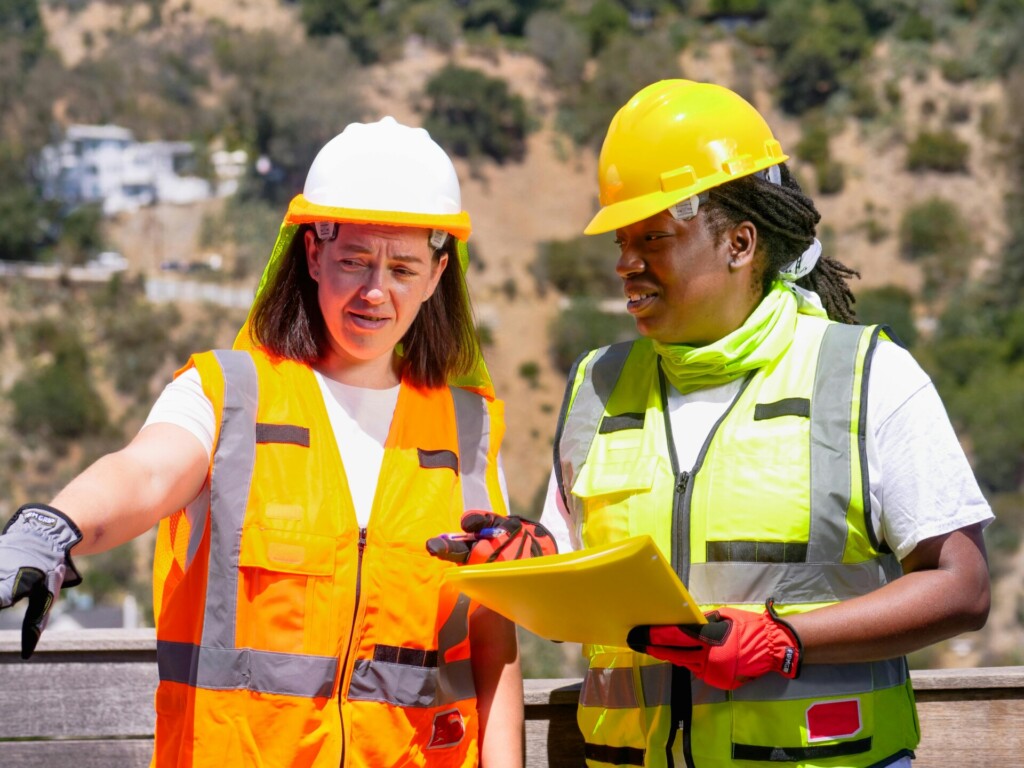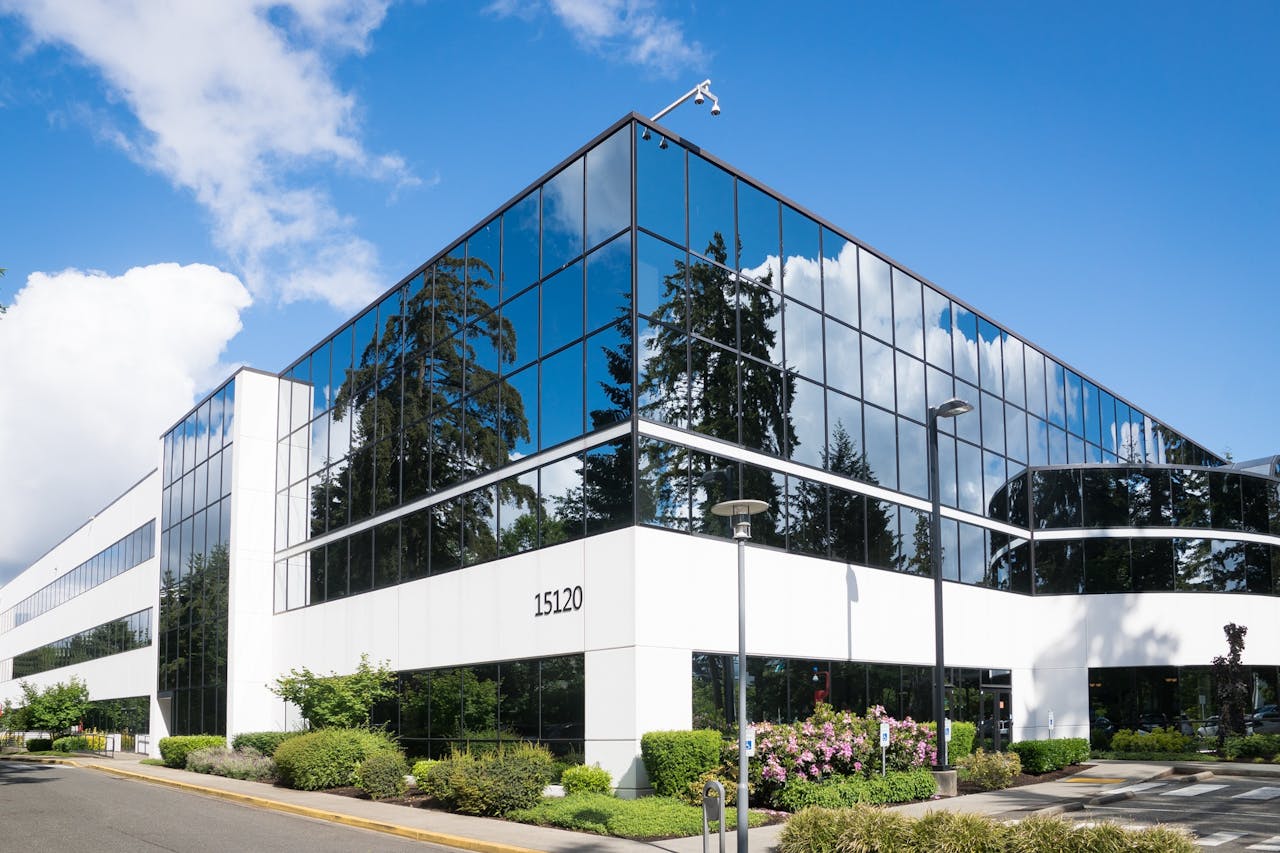Commercial building permits in Dallas serve as the cornerstone of compliant construction, ensuring every project meets the city’s strict safety and regulatory standards. Without the proper permit approval, even the most meticulously planned commercial development can face costly shutdowns, legal complications, and significant delays that impact both timeline and budget.
The City of Dallas Development Services Department oversees the entire commercial permitting process, from initial plan review through final Certificate of Occupancy issuance. We navigate this framework daily, coordinating with DSD officials and utilizing DallasNow for streamlined application management and real-time progress tracking across all project phases.
How Does The Dallas Commercial Permit Process Flow From Intake To Permit?

The Dallas permit timeline operates like construction sequencing itself. Each phase has specific windows and trigger points that determine when the review clock advances. We map our project schedules around these published timeframes because understanding the City’s workflow prevents delays that can stretch approval cycles by weeks.
The Development Services Department breaks down the commercial permit process into distinct phases. Each stage has documented turnaround times that help us forecast project milestones. When we submit during peak construction seasons, these timelines can extend, but the City’s standardized approach creates predictable checkpoints for coordination.
Pre-Development Meeting Sets The Foundation
Before formal submissions, we often schedule pre-development meetings to align with City staff on zoning requirements and potential pitfalls. These appointment-based working sessions typically require about 10 business days to schedule. City reviewers walk through zoning compliance, platting status, utility connections, and drainage considerations during these collaborative sessions.
The meetings prove valuable for identifying common submittal errors before they trigger review cycles. We bring preliminary site plans and use these sessions to confirm access points, utility locations, and infrastructure requirements. This early coordination often prevents the revision loops that add weeks to standard review timelines.
Prescreen And Intake Launches The Official Clock
The prescreen phase validates that submissions meet minimum documentation standards before technical review begins. City staff check for legible, scaled plans; complete code analysis; labeled room uses; existing conditions documentation; and accessibility registration details. This completeness review typically takes about 5 business days.
The critical milestone occurs when initial fees are paid. The official permit timeclock starts at this payment point, not when plans are first submitted. We ensure fee payment happens immediately after prescreen approval to avoid administrative delays that don’t count toward published review timeframes.
Site Permits Enable Phased Construction Starts
For projects requiring extensive sitework, the site permit offers a strategic advantage. This optional permit allows civil work to begin while building plans undergo technical review. Site permit initial review typically takes about 15 business days, giving us parallel processing that can compress overall project timelines.
We coordinate site permits carefully with utility providers and civil contractors. Starting earthwork and infrastructure installation while building plans advance through review requires tight scheduling, but this phased approach often saves 4-6 weeks on complex developments.
Building Permit Plan Review Involves Multiple Disciplines
The comprehensive building permit plan review coordinates multiple City departments simultaneously. Technical reviews cover site/civil engineering, zoning compliance, building codes, electrical systems, plumbing, mechanical installations, green building requirements, fire safety, fire protection systems, and tree preservation/landscaping. Initial review typically takes about 15 business days.
Each discipline operates independently but comments compile into unified review letters. We prepare for this multi-departmental coordination by ensuring plans address all technical areas before submission. Incomplete documentation in any single area can delay the entire review cycle.
Expedited Options Compress Review Timelines
The Q-Team process provides same-day review for projects 10,000 square feet and larger, while 2nd Q-Team serves smaller projects under 10,000 square feet. Both options charge fees starting at $1,000 per hour but can compress weeks of standard review into single appointments.
We bring design teams with stamps and seals to Q-Team sessions, enabling real-time plan revisions during review meetings. When prepared properly, these expedited sessions can result in same-day permit issuance. The investment in hourly fees often pays dividends in accelerated construction starts and reduced carrying costs.
Department Stages Track Progress Through The System
The City’s dashboard defines three distinct department stages that track applications through the system. Stage 1 Prescreen Review runs from application creation until initial fees are paid. Stage 2 Department Review covers technical analysis and any required resubmittals. Stage 3 Post-Review handles final approvals, fee collection, and plan issuance.
Understanding these stage definitions helps us interpret dashboard metrics and communicate realistic timelines to stakeholders. The transition between stages provides clear milestones for project scheduling and resource coordination.
Inspections Follow Structured Scheduling Requirements
Once permits issue, inspections follow Dallas’s standardized scheduling system. The 24/7 automated line at 214-670-5313 handles all inspection requests. We post permits onsite, keep approved plans accessible during inspections, and schedule at least 24 hours in advance.
Work during approved construction hours prevents scheduling conflicts. Monday through Friday operations run from 7 a.m. to 7 p.m., with Saturday work allowed from 8 a.m. to 6 p.m. These time restrictions factor into our construction scheduling and crew coordination.
Certificate Of Occupancy Completes The Permit Cycle
After all final inspections pass, the City issues a Certificate of Occupancy or Temporary Certificate of Occupancy under specific conditions. Initial CofO review often takes 1-10 business days depending on complexity and any outstanding items.
We close all open permits and clear any outstanding fee balances before CofO issuance. This final phase requires coordination between multiple trades to ensure all systems pass final inspections simultaneously. Staggered completion can extend the CofO timeline when inspectors identify interdependent issues during final walkthroughs.
How Can You Accelerate Approval And Reduce Revisions?

Dallas permit data reveals a clear pattern: projects with more revision cycles take significantly longer to approve. We focus on complete first-round submissions to minimize delays and keep projects moving through the system efficiently.
Submit Complete Applications From The Start
We use the City’s comprehensive checklists before intake to ensure every submission meets prescreen standards. Our drawings, narratives, and code analysis must align completely before submittal. This coordination prevents the most common delays that trigger additional review cycles.
Early coordination becomes essential for complex projects. We confirm platting compliance, verify zoning requirements, and secure civil approvals before moving to expedited review options. Ready-for-construction plans submitted to Q-Team sessions eliminate back-and-forth that extends timelines.
Address Comments Completely In Each Resubmittal
Incomplete responses to plan review comments trigger extra cycles that add days to approval timelines. We address every comment fully in each resubmittal rather than providing partial responses that require additional rounds of review.
The Commercial Permits Activity Dashboard shows how revision cycles directly impact median issued days by work type. Projects that resolve all comments in the first resubmittal move through Post-Review timing faster than those requiring multiple incomplete attempts.
Leverage Time-Saving Permit Options
Site Permits allow us to start sitework while building permits remain under review. This parallel processing approach can save weeks on project schedules when properly coordinated with the overall construction sequence.
Q-Team and 2nd Q-Team sessions offer same-day review for eligible projects when we bring stamped drawings and authorized representatives to resolve comments in real-time. The $1,000 hourly fee often pays for itself through eliminated delays.
Track Performance With Dashboard Metrics
We monitor the Commercial Permits Activity Dashboard to understand current processing times and revision impacts. The dashboard shows median issued days by work type and tracks time spent with applicants versus staff review time.
The permit issuance clock starts when initial fees are paid and stops when approved plans are issued, according to dashboard FAQs. Understanding these timing boundaries helps us schedule submittal strategies and coordinate with construction schedules.
House Bill 14 frameworks for third-party reviews and inspections represent emerging policy tools that may affect future processing options. DSD and the City Attorney’s Office continue defining interpretations and qualifications for these alternative review mechanisms.
Which Dashboards, Contacts, And Scheduling Steps Help You Track Progress?
Tracking commercial permit progress requires knowing where to look and who to contact. The City of Dallas provides digital tools and direct access points to monitor applications, manage timelines, and schedule inspections throughout the permit lifecycle.
Commercial Permits Activity Dashboard For Real-Time Tracking
The City’s Commercial Permits Activity Dashboard delivers comprehensive permit metrics through an interactive Tableau interface. This dashboard tracks permits created, issued, and currently in processing stages.
Time allocation data shows how long applications spend with applicants versus City staff. The system also measures the direct impact of revisions on permit issuance timelines, helping us predict project delays before they escalate.
Dashboard filters allow precise tracking by work type including New Construction, Addition, Remodel, and their QT (Q-Team) equivalents. Historical data extends back to 2020, enabling comparative analysis across multiple project cycles and seasonal variations.
The dashboard FAQs explain why median days provide more accurate timeline expectations than averages. Median calculations eliminate outliers that can skew project planning, while clearly defining when the permit clock starts (initial fees paid) and stops (approved plans issued).
Digital Application Management Through DallasNow
All permit applications and status updates flow through DallasNow, the City’s integrated land management platform. This system consolidates permit tracking, document uploads, fee payments, and inspection scheduling in one interface.
Pre-development meetings require appointment scheduling through designated City contacts listed in the DallasNow resources section. Q-Team expedited reviews also use the appointment system, with specific contact protocols for projects meeting size and complexity thresholds.
The platform’s notification system sends real-time updates on application status changes, review completions, and required actions. These automated alerts help maintain project momentum by eliminating manual status checking and reducing communication delays with City staff.
Conclusion And Next Steps

Successfully navigating Dallas commercial permits requires systematic preparation and strategic use of the City’s established processes. We approach each project by first confirming zoning compliance and platting requirements, then organizing complete documentation packages using the City’s detailed checklists before submitting through DallasNow. Paying initial fees promptly starts the official review clock, establishing clear timing expectations from the Development Services Department’s published metrics.
Strategic timing decisions can significantly reduce overall project timelines. We often recommend Pre-Development Meetings for complex projects to identify potential issues early, and Site Permits allow us to begin preliminary work while building permits undergo review. Q-Team expedited services provide same-day review opportunities for eligible projects, though we ensure all documentation meets completeness standards before scheduling these premium services. The Commercial Permits Activity Dashboard serves as our primary tracking tool, revealing permit status updates, median processing times by work type, and the measurable impact of revisions on approval timelines. Early inspection scheduling maintains construction momentum, and we always keep approved plans accessible on-site during all inspection phases until final Certificate of Occupancy issuance.
Ready to streamline your next commercial project in Dallas? Contact EB3 Construction to discuss permit strategy and construction management services.




